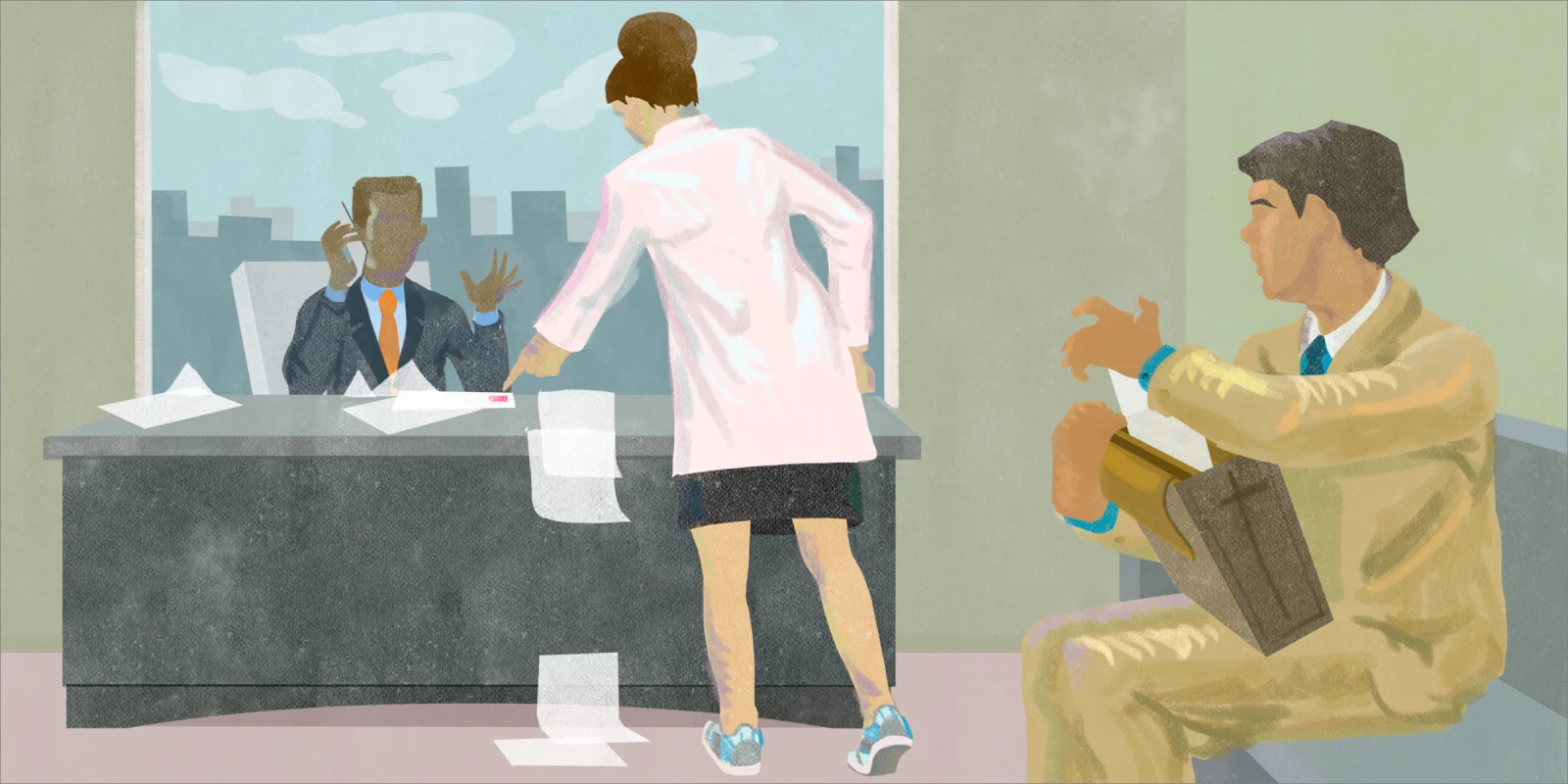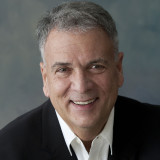As a child growing up in the '60s, I heard my fair share of catchy protest chants. An infectious chant, repeated enthusiastically by a crowd of dozens, or hundreds, or thousands, was often highly effective.
So I humbly submit for consideration a protest chant for modern physicians: “Hey, Hey, AMA – Doctors need a CBA!”
And why not a Collective Bargaining Agreement (CBA)? Professional athletes in the NBA, WNBA, NFL, NHL, and MLB have Players Associations that look out for them. So do airline pilots. What is the American Medical Association (AMA), or the American Osteopathic Association or the Society of Thoracic Surgeons or the American Board of Internal Medicine or the dozens of other organizations in medicine if not, in effect, a Players Association? We are, all of us, uniquely talented individuals with education, skills, and training that make hospital administrators and health care executives look like Pop Warner posers and MLB wannabes.
So what would a physician CBA look like? Or put another way, why do we need one?
Clearly, we all play different sports at different levels and so the specialty colleges and societies we belong to (and support with our dues, exam fees, conference attendance, etc.) would need to do their part in representing us. But let’s start with two demands:
Demand No. 1: Call Pay
Physicians need to be paid for taking call, for that financially benefits hospitals and the corporations that own and run them. It’s time to do away with the guilt trip that it’s our “duty” to provide our services for nothing. In the You Are What You RVU milieu that corporate medicine has created, why would we ever devalue the cost of putting our personal lives on hold? To borrow from an old adage, why would hospital administrators even consider paying for the “cow” when they are currently getting the “milk of human kindness” for free? Service lines that may generate significant ancillary corporate revenue often depend on the 24/7/365 availability of physicians. And let’s forget this nonsense of “customary” free call nights every month just to maintain your hospital privileges. Do you get customary free groceries or free gas several times a month?
Call is a valuable professional service that a physician provides to an institution. The practitioners’ education, training, and expertise do not suddenly lose value when a dressing is applied or a clock strikes 5 p.m. If the hospital wants to run their ATM of a catheterization lab or their IR suite or ED all day and all night, they need physically present operators — but they also depend on doctors who provide back-up call to do it. Those doctors are the nets that underpin these high-dollar trapeze acts and who must — and do — respond at a moment’s notice when things go awry. They don’t derive any financial benefit from the procedures being done on their watch, but those procedures don’t take place without them. They deserve to be compensated as part of the hospital’s cost of doing business.
Demand No. 2: Real World Work Hours
Residency and fellowship programs are governed by strict work hour restrictions for their trainees. If the 28-year-old resident needs to stop working after a long shift or a night without sleep, so does the 56-year-old attending. But EMRs and telemedicine have taken away practicing physicians’ ability to ever really be “away” from the job. How many family docs are reviewing or completing electronic charts at the dinner table or while trying to help with a child’s math homework? How many cardiologists are reviewing echocardiograms while rocking an infant or fretting over a croupy toddler? How many obstetricians are keeping one eye on a child’s dance recital and the other on the fetal monitor readings being streamed to their smartphone?
“Too many” is the correct answer. Ever more sophisticated technology has the insidious power to keep physicians working (and worrying) long after they are off the clock. Attorneys have billable hours — why not physicians? If a hospital can afford to pay its senior leadership six-figure salaries, it can afford to pay “the talent” that hospital needs to exist commensurate with their contributions. The modern physician’s workday starts before and extends well beyond office hours or an OR schedule, even when not on call. Prepping for cases, reviewing the charts of the next day’s visits, reviewing digital sheaves of lab and diagnostic study reports — why should this be “on our own time?”
How many specialists are awakened regularly by moonlighting, inexperienced, or geographically-isolated physicians seeking urgent advice and guidance on a patient’s care? Yes, the prime directive, as it should be, is always to take care of the patient. But so often physicians are expected to “donate” their expertise, not to mention any shot at a night’s sleep. And ask your hospital if they’re recording that free advice without explicitly informing you. The answer may surprise you.
Hospitals and the large corporations that now run many of them are primarily businesses. In a land that should be ruled by altruism, the return on investment (the ROI, ironically) is king. I once sat open-mouthed at a meeting where a hospital CFO said unapologetically that “physicians really have no intrinsic monetary value.” I beg to differ. Try running a hospital without them. It’s time hospitals started paying doctors for the actual work they are doing and the actual hours they are putting in. If health care accountants can monetize a paper medicine cup, I’m certain that’s a task they can manage. We need to stop allowing our life’s work to be continually devalued. A CBA would do that for us.
Not that long ago, you might remember, we were heroes — saving humanity from vile and viral decimation while still doing our day jobs. You don’t hear that much anymore. How can hospitals and their well-heeled administrators really thank physicians for stepping up when literally everything was on the line? Start by not telling us we don’t have any intrinsic value. Start by paying us fairly for time, talent, dedication, and expertise. Moneychangers have invaded the Temple of Medicine. It’s time we started turning over a few tables.
Hey, Hey, AMA, Doctors need a CBA!
Daniel J. Waters, DO, MA practiced cardiac surgery for thirty years and served as a Director of Medical Education for 20 before retiring in 2019. He is now a full-time author and novelist. Dr. Waters was a 2019-2020 Doximity Fellow and is a 2020–2021 Doximity Op-Med Fellow. Dr. Waters has no conflicts of interest to disclose.
Illustration by Jennifer Bogartz





